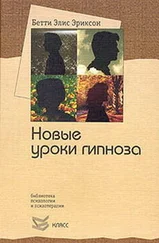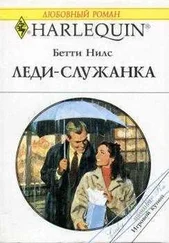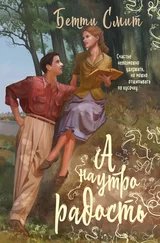Бетти Смит - Maggie-Now
Здесь есть возможность читать онлайн «Бетти Смит - Maggie-Now» весь текст электронной книги совершенно бесплатно (целиком полную версию без сокращений). В некоторых случаях можно слушать аудио, скачать через торрент в формате fb2 и присутствует краткое содержание. Жанр: Проза, на английском языке. Описание произведения, (предисловие) а так же отзывы посетителей доступны на портале библиотеки ЛибКат.
- Название:Maggie-Now
- Автор:
- Жанр:
- Год:неизвестен
- ISBN:нет данных
- Рейтинг книги:3 / 5. Голосов: 1
-
Избранное:Добавить в избранное
- Отзывы:
-
Ваша оценка:
- 60
- 1
- 2
- 3
- 4
- 5
Maggie-Now: краткое содержание, описание и аннотация
Предлагаем к чтению аннотацию, описание, краткое содержание или предисловие (зависит от того, что написал сам автор книги «Maggie-Now»). Если вы не нашли необходимую информацию о книге — напишите в комментариях, мы постараемся отыскать её.
Maggie-Now — читать онлайн бесплатно полную книгу (весь текст) целиком
Ниже представлен текст книги, разбитый по страницам. Система сохранения места последней прочитанной страницы, позволяет с удобством читать онлайн бесплатно книгу «Maggie-Now», без необходимости каждый раз заново искать на чём Вы остановились. Поставьте закладку, и сможете в любой момент перейти на страницу, на которой закончили чтение.
Интервал:
Закладка:
She has her baby, Rev, he thought. And now she will take her love from me and give it all to the child.
A few days after the baptism, a package for the baby arrived from The M[issus. It was l\lary's christening robe, slightly yellow with age. Attached to it was a five-dollar bill and a note. The Missus hoped the dress would get there in time for the christening, and she would have come to see her first grandchild, only Aunt Henrietta wasn't well and. .
"Some family," sneered Patsy. "Wouldn't take the trouble to come and see the only child of the only daughter."
"Now, Patrick," said Mary patiently. She knew Patsy was terribly disappointed that her mother hadn't come for a visit. She knew that he was very fond of The Missus.
For the first year of its life, the baby \` as called and referred to as "Baby." Mary waited for a nickname to evolve. Would it he "Maggie Rose" or "Pegeen" or "Maggie"?
In that neighborhood, few children were called by their baptismal names. The formal name appeared or was used only for diplomas and registration and things like that.
Sometimes foreignborn parents had trouble pronouncing a name; sometimes the child nicknamed itself. A "Catherine" would be pronounced, "Cat-rip," shortened to "Cat," then expanded to "Catty" and finally translated to "Pussy." "Elizaberh" went into "Lizziebet," to "Lizzie," to "Litty" (because the child couldn't pronounce the z's), and ended up "Lit." Long na mes were shortened and short names were lengtl-~ened. For instance, many an "Anna"
ended up "Anna-la."
It was Patsy who accidentally gave the baby the name she d i b'5 1
always be known by. One night as he and Mary were preparing for bed, he looked at the big one-year-old baby who was sleeping sprawled sidewise across the bed.
"I don't get me sleep nights, no more," he said. "This bed ain't big enough for the three of us. This baby now.
" He paused, and then he gave her her name.". . This here Maggie, now, is big enough to have a bed of her own."
They got a crib for her. She cried the first night she slept away from her mother. Mary soothed her.
"There, baby, there!" The child bawled harder. "Hush,"
said Mary. "Hush, Maggie. Hush, Maggie, now." The child stopped crying, smiled blissfully put her thumb into her mouth and went off to sleep.
She grew up healthy, happy and loving. She was full of mischief and cheerfully disobedient. The day long throughout the house it was: "Maggie, now give me those scissors before you stab yourself."
"Maggie, now mind your father when he speaks to you."
"Maggie, now. ."
And so she became known as Maggie-Now.
~ CHAPTER FOURTEEN ~
MARY, never having hall younger sisters or brothers, had no experience in bringing up a child. Her natural maternal feelings had been used in an organised way to handle thirty-odd children a day as a schoolteacher. She had a tendency, tempered by indulgent love, to regiment Maggie-Now. Mentally, she reached for a bell each morning to get the child started. She organized the child's day and was apt to give instructions as a schoolteacher would.
"We will take our little walk now."
"Eat your nice lunch, dear."
"What story shall we read tonight?" [861 "It's time for a certain good little girl to go to bed."
When Maggie-Now was three, Mary tried to teach her to read. Maggie-Now squirmed, itched, scratched, rolled her eyes and made spit bubbles. Mary had to give it up.
"She's intelligent," Mary told her husband, "but she won't sit still long enough to learn."
"She'll be on her behind long enough when she starts regular school," said Patsy. "Besides, why does she have to learn everything so quick? Why, she ain't housebroken yet and you expect her to read!"
"Don't you believe in education, Patrick?"
"No," he said. "I went as far as what amounts to the sixth grade in America. And where did it get me? Cleaning streets."
But Maggie-Now was very precocious in practical things like work. Even as a toddler, she dusted while her mother swept, insisted on drying the dishes when her chin was but an inch above the sink drainboard, tried to make up a bed, and asked constantly when she could cook. Her reward for being good was permission to grind up left-over meat in the food chopper. Her punishment when naughty was the withdrawal of the privilege of grinding the morning coffee beans.
One day each summer, as she was growing up, her parents took her to the beach. Maggie-Now dearly loved the ocean. The ride in the open trolley was grand and the boarding of the Long Island train at Brooklyn Manor Station was a thrill. The high point of the journey was when the train went over water on a wooden trestle. Mary held the girl's arm tightly, admonishing her not to fall out, now.
"Maybe the trestle will break this time," said Maggie-Nou hopefully, "and we'll all fall in the water."
"By God," said Patsy, "she wants it to break! She lDants the train to fall in the water!' "Sh!" said Mary.
Maggie-Now had no bathing suit. She grew so fast from year to year that it would have been a waste of money to buy one each year for just one day at the beach. Trying to follow her mother's admonition not to be ashamed because nobody was looking I\laggie-Novv, undressed behind a big towel that her mother held around her like a limp barrel. She changed into a 1 'S'- ~
pair of out-grown pants and a worn-out dress in lieu of a bathing SUit.
She ran whooping into the ocean and plunged into the first wave with a scream of delight. She held onto the rope and leaped and ducked and squatted to let the waves break over her head and howled in pretended terror
(though flattered by the attention) when a big boy dived and grabbed her ankles and tried to duck her.
Mary and Patsy sat on the towel: she in her Sunday dress and hat, sitting primly with her gloved hands in her lap, and Patsy lolling on an elbow and, as was traditional with men, eying the women in their bathing suits, their legs in long, black lisle stockings and the ruffles of bloomers showing beneath knee-length skirts.
After an hour, Pats' went to the water's edge and induced Maggie-Now to come out. She changed back to her dry clothes inside the towel. Then they had their lunch which Mary had brought from home in a shoebox: ham bologna sandwiches, hardboiled eggs, sweet buns and drinks, now warm, which Patsy had bought when they got off the train. There was a bottle of beer for Patsy, a celery tonic for Mary, and a bottle of cream soda for Maggie-Now.
After the lunch, Patsy announced that he would take a half hour's nap and then they would make a break for home to avoid the rush. Maggie-Now was given permission to walk up the beach and given strict orders not to take candy from anyone.
She ran up the beach, leaping over outstretched and sometimes intertwined legs. She stopped to stare frankly at a couple lying on the sand on their sides and looking into each other's eyes. Their faces were hardly an inch apart. The young man, discomfited by her staring, lifted his head.
"Get a gait on, kid," he said.
"What gate?" asked Maggie-No\v.
"She don't get your drift," said the young woman languidly.
"Twenty-three, skidoo," said the young man.
"I gotcha," said Maggie-Now, pleased that she could speak their lingo. "I'll beat it.' Going home on the I.ong Island, she sat between her parents and raved her hands in a paper bag of Rockaway sand.
— ss 1 "You know what?" she said. "I'm going to make a wish on the first star tonight. I'm going to wish that when I get big I'll have a house right by the water and listen to the waves when I'm in bed nights. And in the daytime, I'll jump in any time I feel like it."
Читать дальшеИнтервал:
Закладка:
Похожие книги на «Maggie-Now»
Представляем Вашему вниманию похожие книги на «Maggie-Now» списком для выбора. Мы отобрали схожую по названию и смыслу литературу в надежде предоставить читателям больше вариантов отыскать новые, интересные, ещё непрочитанные произведения.
Обсуждение, отзывы о книге «Maggie-Now» и просто собственные мнения читателей. Оставьте ваши комментарии, напишите, что Вы думаете о произведении, его смысле или главных героях. Укажите что конкретно понравилось, а что нет, и почему Вы так считаете.












